Fall 2020 CM2 Symposium
Virtual event
Stuart Weitzman School of Design
102 Meyerson Hall
210 South 34th Street
Philadelphia, PA 19104
Virtual event
Established in 2016 through a $1.4 million annual grant from the U.S. Department of Transportation, the Consortium of Cooperative Mobility for Competitive Megaregions (CM2), USDOT Tier 1 University Transportation Center, aims to advance research, education, and technology transfer initiatives to improve the mobility of people and goods in urban and rural communities of megaregions. Along with Penn, consortium partners include the University of Texas at Austin, Louisiana State University, Texas Southern University.
The Fall 2020 symposium is presented by CM2 and Lincoln Institute of Land Policy.
If you require any accessibility accommodation, such as live captioning, audio description, or a sign language interpreter, please email news@design.upenn.edu to let us know what you need. Please note, we require at least 48 hours’ notice. If you register within 48 hours of this event, we won’t be able to secure the appropriate accommodations.
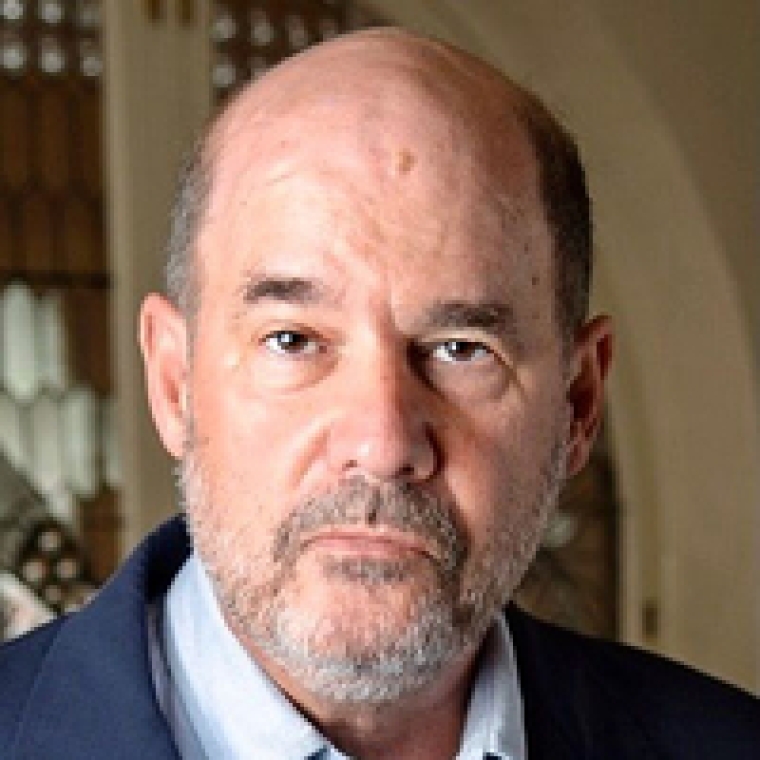 Robert D. Yaro (Weitzman)
Robert D. Yaro (Weitzman)
Robert Yaro is Professor of Practice Emeritus at the University of Pennsylvania, where he taught from 2002 to 2020. He is also former President of Regional Plan Association, which he led for 25 years until 2014. He is an honorary member of the Royal Town Planning Institute.
 Ming Zhang (UT Austin)
Ming Zhang (UT Austin)
Dr. Zhang is Professor of Community and Regional Planning in the School of Architecture, University of Texas at Austin. Prior to joining UT Austin, Dr. Zhang held several academic and professional positions, including tenure-track Assistant Professor at Texas A&M University, Research Scientist at the Rockefeller Institute of Government in Albany, New York, and Lecturer and licensed Planner/Architect at the Huazhong (Central China) University of Science & Technology, Wuhan, China.
 Frederick R. Steiner (Weitzman)
Frederick R. Steiner (Weitzman)
Frederick Steiner (MRP’77, MA’86, PhD’86) is Dean of the University of Pennsylvania Stuart Weitzman School of Design. Most recently, he served as Dean of the School of Architecture and Henry M. Rockwell Chair in Architecture at The University of Texas at Austin for 15 years. He previously taught at Penn and the following institutions: Arizona State University, Washington State University, the University of Colorado at Denver. He was a visiting professor of landscape architecture at Tsinghua University in Beijing, China. Dean Steiner was a Fulbright-Hays scholar at Wageningen University, The Netherlands and a Rome Prize Fellow in Historic Preservation at the American Academy in Rome. During 2013-2014, he was the William A. Bernoudy Architect in Residence at the American Academy in Rome. He is a Fellow of both the American Society of Landscape Architects and the Council of Educators in Landscape Architecture, and a Scholar at the Penn Institute for Urban Research. Dean Steiner helped establish the Sustainable SITES Initiative, the first program of its kind to offer a systematic, comprehensive rating system designed to define sustainable land development and management, and holds the SITES Professional (SITES AP) credential.
 Catherine Ross (Georgia Tech)
Catherine Ross (Georgia Tech)
Dr. Catherine L. Ross is a University of Georgia Regents Professor and a chaired professor in the Schools of City and Regional Planning and Civil and Environmental Engineering. She currently serves as Director of the Center for Quality Growth and Regional Development (CQGRD). Dr. Ross previously served as Deputy Director of Georgia Tech's University Center for Transportation System Productivity and Management and was the first Executive Director of the Georgia Regional Transportation Authority (GRTA). An internationally known transportation and urban planner, Ross is one of the world's experts on Megaregions and sustainability. Ross is an and has conducted research and written extensively on this topic. She is editor of Megaregions: Planning for Global Competitiveness. Her research interests include transportation planning impact analysis, data analytics, sustainable development, and freight and passenger mobility options for cities and regions including examination of the increasing role of e-commerce and emerging technologies.
 James Garland (FHA)
James Garland (FHA)
James Garland leads and manages the Planning Capacity Building Program at the U.S. Department of Transportation- Federal Highway Administration in the Office of Planning, Environment, and Realty in Washington, DC. James has almost 17 years of multi-modal planning experience related to policy development and implementation, Smart Cities, and more.
Presentations by Ethan Seltzer (Portland State), Armando Carbonell (Lincoln Institute), Susannah Drake (CU Boulder)
Moderated by Robert Yaro (Weitzman)
 Ethan Seltzer (Portland State)
Ethan Seltzer (Portland State)
Ethan Seltzer serves as Professor Emeritus in the Toulan School of Urban Studies and Planning at Portland State University. During his 25-year career at Portland State he served as Interim Director of the School of Art+Design, Director of the Toulan School, and as the founding director of Portland State’s Institute of Portland Metropolitan Studies. Before joining PSU, he was the Land Use Supervisor for Metro, served as an Assistant to Portland City Commissioner Mike Lindberg, was the Assistant Director for the Southeast Uplift Neighborhood Program in Portland, and created and directed a statewide coalition dedicated to improving drinking water quality monitoring and protection throughout Oregon. His research focused on regionalism, regional planning, and citizen participation, along with Oregon history and policy debates. He has been a resident of the Portland metropolitan area since 1980, and has served as the President of the City of Portland Planning Commission, the 40-Mile Loop Land Trust, the Oregon Environmental Council, and the Portland Institute of Contemporary Art.
 Armando Carbonell (Lincoln Institute)
Armando Carbonell (Lincoln Institute)
Carbonell chaired urban planning at the Lincoln Institute for twenty years. After an early career in state land use policy in Connecticut and as an academic geographer, he went on to initiate a new planning system for Cape Cod, MA as founding Executive Director of the Cape Cod Commission. He later taught urban planning at Harvard University and the University of Pennsylvania and served as an editor of the British journal Town Planning Review. He is the author or editor of numerous works on city and regional planning, including co-editor of Planning for States and Nation-States in the U.S. and Europe and Nature and Cities: the Ecological Imperative in Urban Design and Planning. Carbonell attended Clark University and the Johns Hopkins University and was a Loeb Fellow at Harvard. He is a fellow of the American Institute of Certified Planners and the Academy of Social Sciences (UK) and lifetime honorary member of the Royal Town Planning Institute.
 Susannah Drake (CU Boulder)
Susannah Drake (CU Boulder)
Susannah C. Drake FAIA FASLA is Associate Professor at CU Boulder and founding principal of DLANDstudio Architecture + Landscape Architecture. Drake is a global thought leader on climate adapted infrastructure and urban design. Over the last decade her inventive design work for transformation of the Brooklyn Queens Expressway has inspired a national movement to heal the wounds made by urban highways. Her award-winning design work is in the permanent collection of MoMA and Cooper Hewitt National Design Museum. Susannah’s Coastal Urbanism planning argues for climate migration as part of the RPA 4th Regional Plan. In 2020 her Gowanus Canal Sponge Park project won the inaugural Cooper Hewitt Smithsonian National Design Award for Climate Action. Most recently she unveiled bold plans for how to protect and preserve cultural and ecological assets of the National Mall in Washington DC.
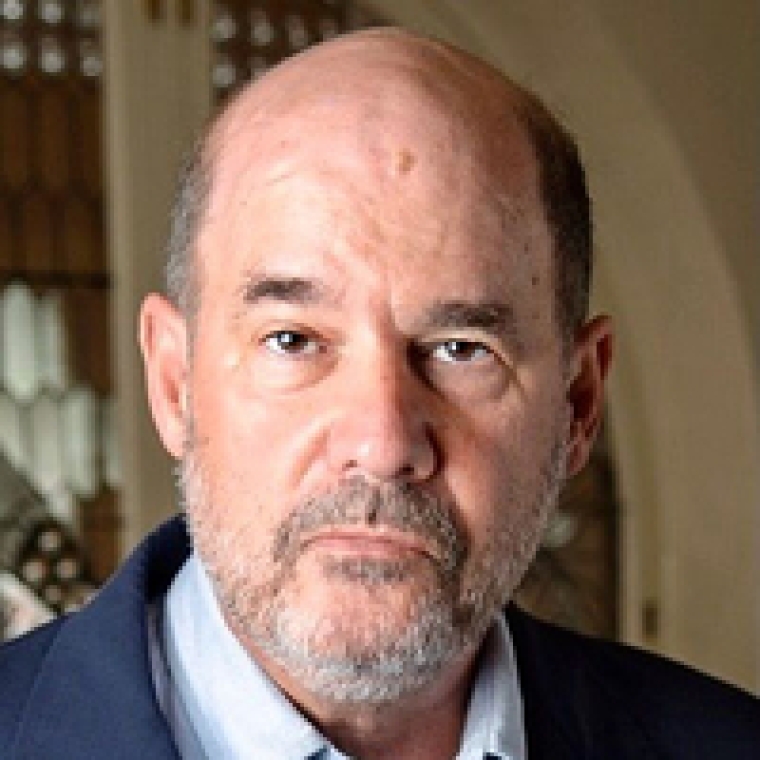 Robert D. Yaro (Weitzman)
Robert D. Yaro (Weitzman)
Robert Yaro is Professor of Practice Emeritus at the University of Pennsylvania, where he taught from 2002 to 2020. He is also former President of Regional Plan Association, which he led for 25 years until 2014. He is an honorary member of the Royal Town Planning Institute.
Presentations by Lisa Aultman-Hall (University of Waterloo), Amy Kim (University of Alberta), Leslie Richards (SEPTA)
Moderated by Megan Ryerson (Weitzman)
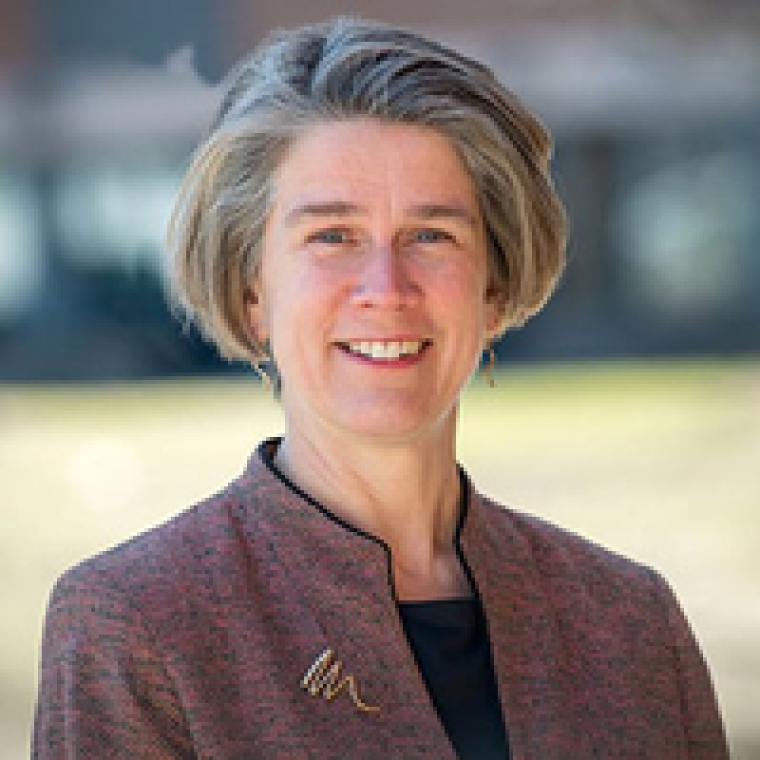 Lisa Aultman-Hall (Waterloo)
Lisa Aultman-Hall (Waterloo)
Dr. Lisa Aultman-Hall is Professor and Chair of Systems Design Engineering at the University of Waterloo in Ontario Canada. Dr. Aultman-Hall focuses on transportation systems, especially methods to collect unique databases for modeling and analysis of long-distance travel, transportation sector emissions, network resiliency, streetscape design, and non-motorized transportation. Until recently, she served several leadership roles at the interdisciplinary University of Vermont Transportation Research Center. Dr. Aultman-Hall is active with the Transportation Research Board of the National Academies where recent roles include chairing the National Transportation Data Committee and the 2018 National Household Transportation Survey (NHTS) Conference. Dr. Aultman-Hall is currently co-leader of the Sustainable Aviation Research Collaborative at the University of California Davis. Dr. Aultman-Hall brings modeling of real-world spatial behavior to the modeling of charging demand for electric vehicles with the Joint Clean Climate Transport Research Partnership (JCCTRP) led by the University of Quebec at Montreal.
 Amy Kim (University of Alberta)
Amy Kim (University of Alberta)
Amy Kim is an Associate Professor in the Department of Civil & Environmental Engineering at the University of Alberta. Her research program in transportation systems analysis focuses on understanding multimodal networks and applications for resource allocation across long-distance, large-scale systems. She is interested in wildfire emergency management, northern transportation infrastructure planning under climate change impacts, and integrated analysis of air and ground transportation systems and travel. She joined the U of A faculty in 2011 after completing her PhD at the University of California, Berkeley. In the years between her MSc (2002, Berkeley) and PhD studies, she worked in transportation engineering consulting in both Oakland, CA and Vancouver, BC.
 Leslie Richards (SEPTA)
Leslie Richards (SEPTA)
Leslie S. Richards is the 11th General Manager of Southeastern Pennsylvania Transportation Authority (SEPTA), where she oversees a budget of more than $2 billion and 9,500 employees As the sixth largest public transportation agency in the U.S., SEPTA operates across six transportation modes and has 2,800 vehicles in service, 285 subway and rail stations, 13,000 bus and trolley stops, and 150 routes.
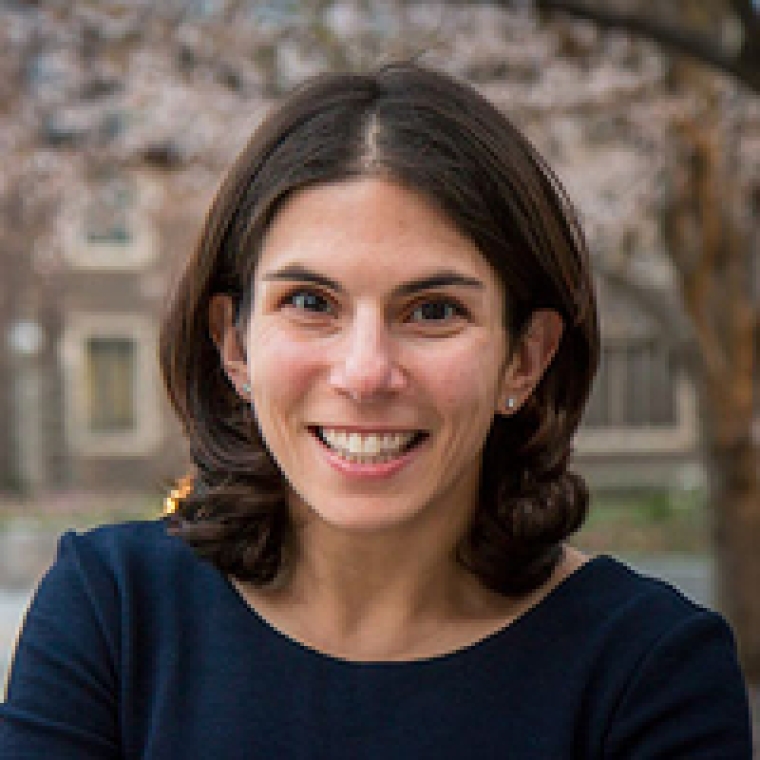 Megan Ryerson (Penn)
Megan Ryerson (Penn)
Dr. Megan S. Ryerson is the UPS Chair of Transportation and an Associate Professor of City & Regional Planning and Electrical & Systems Engineering at the University of Pennsylvania. Since 2018 she has served as the first Associate Dean for Research at Penn's Weitzman School of Design. She is the Research Director of the Department of Transportation-funded Mobility21 Research Center and the founder of the Center for Safe Mobility. Dr. Ryerson leads a large, diverse, and active research group focused on developing data-driven methods to investigate pressing transportation problems, including changing megaregional travel trends in an era of new vehicle technology, intercity transportation sustainability, and pioneering new methods for transportation safety and equity analysis. Dr. Ryerson has published over 40 peer-reviewed academic papers and has mentored hundreds of students who are currently leaders in the field. She contributes to numerous federal, state, and local task forces, including PennDOT’s COVID-Recovery Task Force.
Presentations by Bryan Rodda Federal Railroad Administration), Kip Bergstrom, Lisa Loftus Otway-Otway (UT-Austin)
Moderated by Carol Lewis (Texas Southern)
 Bryan Rodda (Fed. Railroad Assoc.)
Bryan Rodda (Fed. Railroad Assoc.)
Bryan Rodda is a planner in the Passenger Rail Policy and Oversight Division of the Federal Railroad Administration (FRA). In this role, Bryan contributes to oversight of Congressional funding provided to Amtrak and oversight of Amtrak’s capital planning and programming activities. Bryan also implements Federal intercity rail policy requirements, which has included deep engagement with the Northeast Corridor Commission. He serves as the program lead for FRA’s Federal-State Partnership for State of Good Repair discretionary grant program, which has awarded more than $850 million in grants for capital projects to repair, replace and rehabilitate intercity passenger rail assets in the past three years. He holds a Master of City Planning (MCP, ‘10) degree from the University of Pennsylvania Weitzman School of Design and an undergraduate degree from The College of Wooster.
 Kip Bergstrom
Kip Bergstrom
Kip Bergstrom has 30 years of executive leadership experience in the private, public and non-profit sectors, covering all aspects of economic development and competitive strategy, with a focus on policies and initiatives to make the small possible: start-ups and growth-stage businesses, self-builders and small cap developers, in walkable neighborhoods of small cities and towns. He has served in top economic development positions with three mayors and three governors.
 Lisa Loftus Otway-Otway (UT-Austin)
Lisa Loftus Otway-Otway (UT-Austin)
Lisa Loftus-Otway, Attorney at Law (New York Licensed) is a Research Scientist at the Center for Transportation Research at the University of Texas at Austin, and as is the Assistant Director for Research at the Center for Cooperative Mobility for Competitive Megaregions a Tier 1 USDOT University Transportation Center. Prior to arriving in the U.S, she worked in the public and private sector in the UK and South Africa. Lisa’s education background includes a LLB in Law, Masters in International Environmental Law from the University of Nottingham and a Masters in Public Affairs from the LBJ School of Public Policy at UT-Austin. Lisa is an active member of the Women’s Transportation Seminar (WTS). She was a board member of WTS International, served as the Heart of Texas Chapter’s president in 2013-2014, and was the 2016 HOT chapter Woman of the Year. Lisa also served on the Texas Exes Advisory Council for 5 years and was the LBJ Austin Alumni Association President
 Carol Abel Lewis (Texas Southern)
Carol Abel Lewis (Texas Southern)
Carol Abel Lewis, Ph.D., Professor in Transportation Studies and Emeritus Director of the Center for Transportation Training and Research at Texas Southern University. Lewis educates students in transportation fundamentals and urban transportation issues and conducts operational/policy research. Current research focuses on megaregions planning, automated vehicles for transit, bus operations on managed lanes and best practice in public involvement. She has conducted research for the USDOT, Texas Department of Transportation, Houston METRO, metropolitan planning organizations and private consultants. Service includes Chair of Gulf Coast Rail District – appointment by Houston Mayor and Harris County Judge & Commissioner’s Court. Lewis also chairs Transportation Research Board’s Inclusion & Diversity Committee and serves on TRB’s Transit Research Advisory Committee (TRAC). She received the Rosa Parks Diversity Leadership Award from Houston’s Chapter of WTS and TRB’s Sharon D. Banks Humanitarian Award. Her Ph.D. is from the University of Houston; Masters and Bachelor degrees from University of Iowa.
Presentations by Beth Osborne (Transportation America), Carlos Martin (Urban Institute), Yonah Freemark (Urban Institute)
Moderated by Billy Fleming (Weitzman)
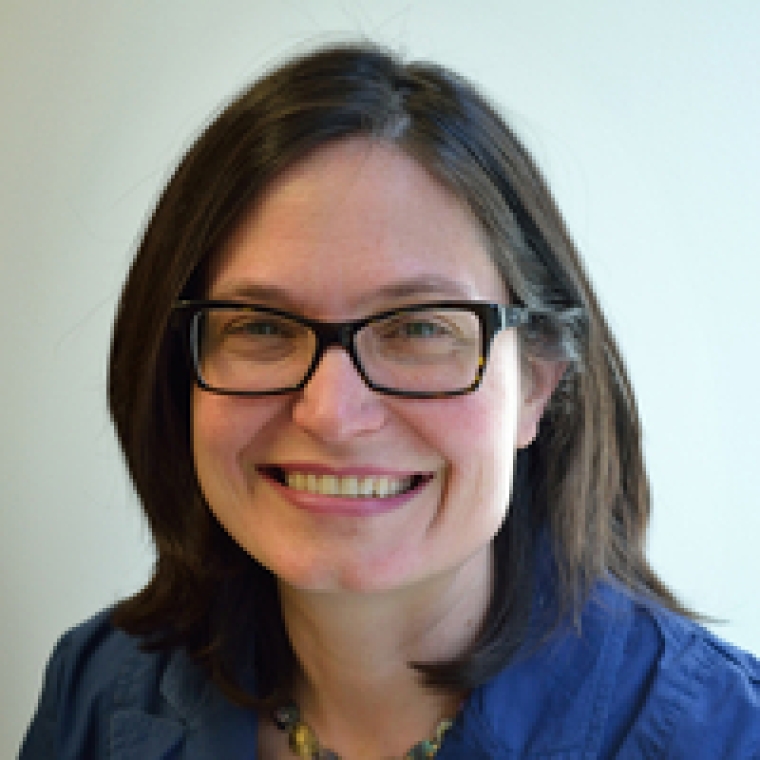 Beth Osborne (Transportation America)
Beth Osborne (Transportation America)
Beth Osborne is the Director of Transportation for America, a national nonprofit made up of local, regional and state leaders who envision a transportation system that safely, affordably and conveniently connects people of all means and ability to jobs, services, and opportunity through multiple modes of travel. She was previously at the U.S. Department of Transportation, where she served as the Acting Assistant Secretary for Transportation Policy and the Deputy Assistant Secretary for Transportation Policy since 2009. At DOT, Beth managed the TIGER Discretionary Grant program, the Secretary’s livability initiative, the development of the Administration’s surface transportation authorization proposal, and the implementation of MAP-21. Before joining DOT, Beth worked for Sen. Tom Carper (DE) as an advisor for transportation, trade and labor policy, as the policy director for Smart Growth America and as legislative director for environmental policy at the Southern Governors’ Association. She began her career in Washington, DC, in the House of Representatives working as a legislative assistant for Rep. Ron Klink (PA-04) and as legislative director for Rep. Brian Baird (WA-03).
 Carlos Martin (Urban Institute)
Carlos Martin (Urban Institute)
Dr. Carlos Martín is a senior fellow in the Metropolitan Housing and Communities Policy Center at the Urban Institute where he leads research on the physical qualities of housing and communities. Martín, a trained architect and construction engineer, uses his technical training to connect the nuts and bolts of housing to its social outcomes. His areas of expertise include green housing, disaster mitigation, climate adaptation, housing quality, and building codes. Before joining Urban, Martín was assistant staff vice president at the National Association of Home Builders for Construction Codes and Standards, SRP Professor for Energy and the Environment at Arizona State University, and coordinator for the U.S. Department of Housing and Urban Development's Partnership for Advancing Technology in Housing. Martín received his BSAD in architecture from MIT and his MEng and PhD degrees in civil and environmental engineering from Stanford.
 Yonah Freemark (Urban Institute)
Yonah Freemark (Urban Institute)
Yonah Freemark is senior research associate in Metropolitan Housing and Communities at the Urban Institute. His research focuses on the intersection of land use, affordable housing, and transportation. He has published research on a wide variety of topics, including autonomous vehicles, public housing history, metropolitan fragmentation, and mixed-use urbanism. Previously, Freemark worked for Chicago’s Metropolitan Planning Council and has written for the New York Times, Next City, and CityLab, among others. He created the website The Transport Politic. He holds master’s degrees in both city planning and in transportation, as well as a PhD in urban studies, from MIT.
 Billy Fleming (Weitzman)
Billy Fleming (Weitzman)
Billy Fleming (PhD’17) is Wilks Famoly Director of The Ian L. McHarg Center for Urbanism and Ecology at the University of Pennsylvania Stuart Weitzman School of Design. Most recently, he co-authored The Indivisible Guide—a progressive, grassroots organization with more than 6,000 groups—and co-created Data Refuge, an international consortium of scientists, librarians, and programmers working to preserve vital the environmental data at risk of erasure during the Trump Administration. Before coming to Penn, Fleming worked on urban policy development in the White House Domestic Policy Council during the Obama Administration. There, he worked on a variety of urban initiatives, including the inter-agency Sustainable Communities Initiative, the Promise Zones program, and the landmark Affirmatively Furthering Fair Housing rule.